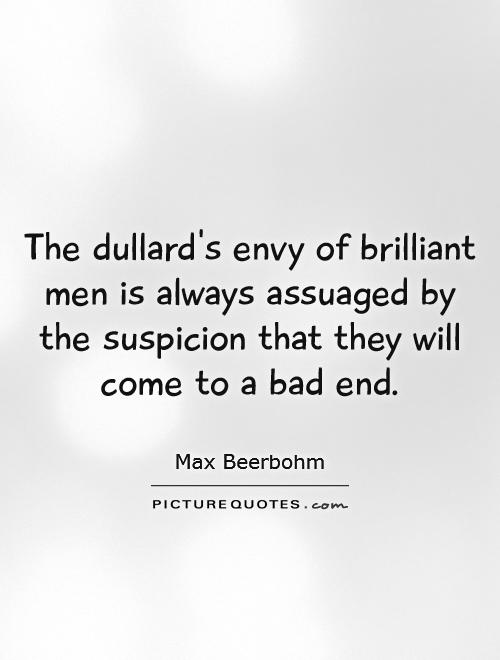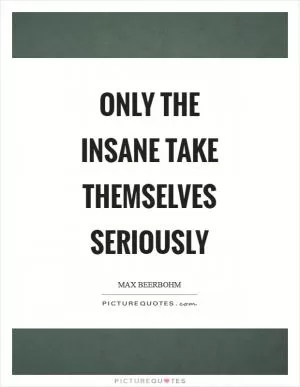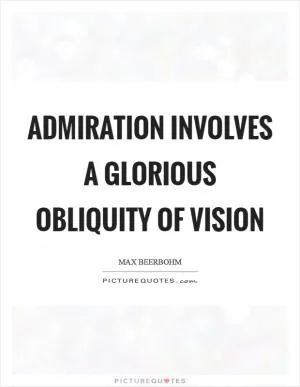The dullard's envy of brilliant men is always assuaged by the suspicion that they will come to a bad end

The dullard's envy of brilliant men is always assuaged by the suspicion that they will come to a bad end
Max Beerbohm was a British essayist, humorist, and caricaturist known for his wit and satirical observations on society. His works often explored the complexities of human nature and the dynamics of envy and admiration. In the context of the quote, "The dullard's envy of brilliant men is always assuaged by the suspicion that they will come to a bad end," Beerbohm's writings shed light on the intricate relationship between mediocrity and genius.Beerbohm understood that envy is a common human emotion, especially among those who feel inadequate or lacking in comparison to others. The dullard, or the average person, may feel envious of brilliant men who possess exceptional talent, intelligence, or success. However, this envy is often tempered by a sense of satisfaction or relief in the belief that these brilliant individuals will ultimately face downfall or misfortune.
This sentiment reflects a common psychological phenomenon known as "tall poppy syndrome," where people feel the need to cut down those who stand out or excel in order to feel better about themselves. The dullard's envy of brilliant men is rooted in insecurity and a desire to see others fail in order to validate their own shortcomings.
Beerbohm's observation also speaks to the fear of the unknown and the unpredictability of life. Brilliant men may possess extraordinary talents and abilities, but they are not immune to the pitfalls and challenges that come with success. The dullard's suspicion that these brilliant individuals will come to a bad end reflects a sense of schadenfreude, or pleasure derived from the misfortune of others.












 Friendship Quotes
Friendship Quotes Love Quotes
Love Quotes Life Quotes
Life Quotes Funny Quotes
Funny Quotes Motivational Quotes
Motivational Quotes Inspirational Quotes
Inspirational Quotes